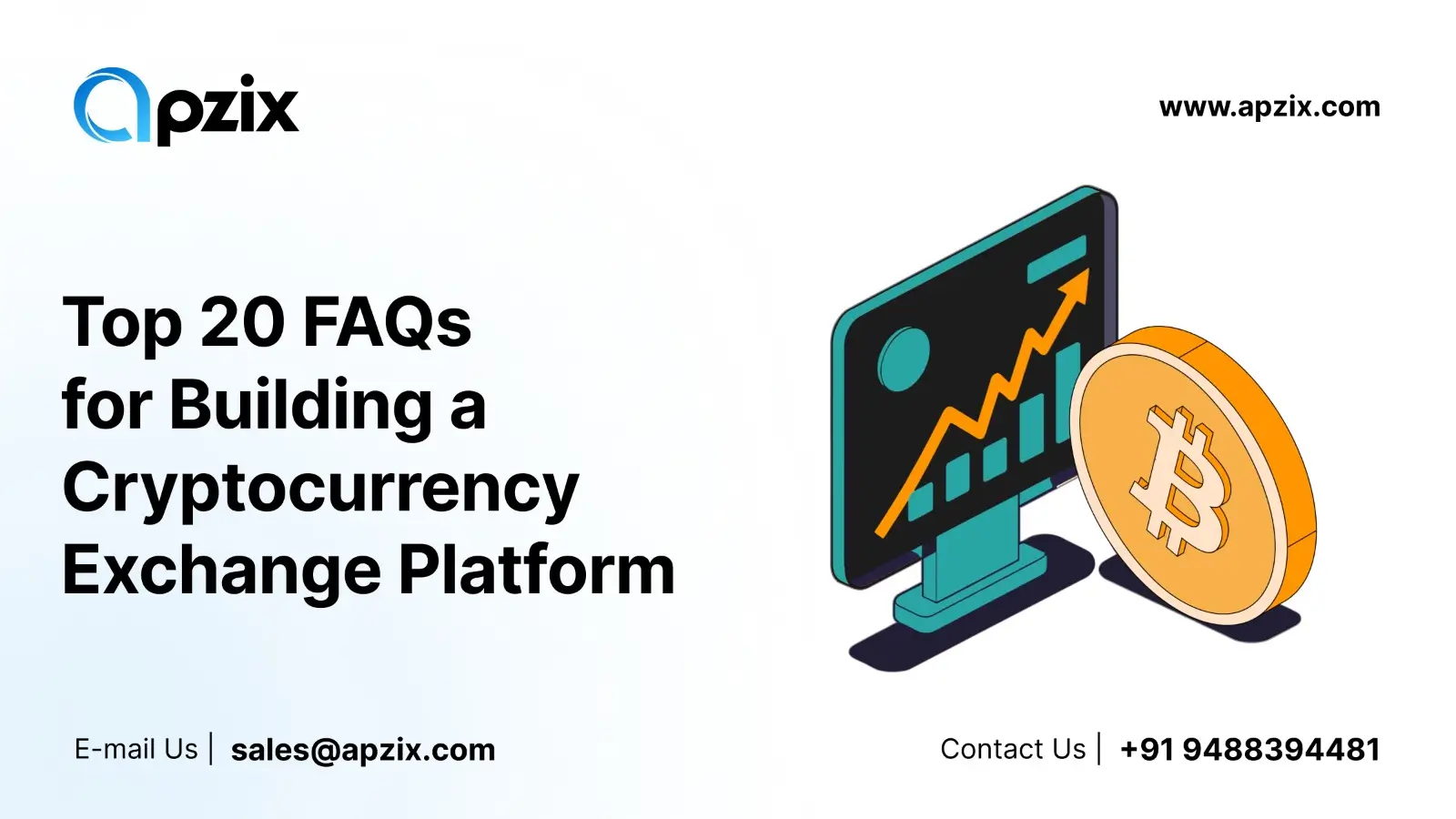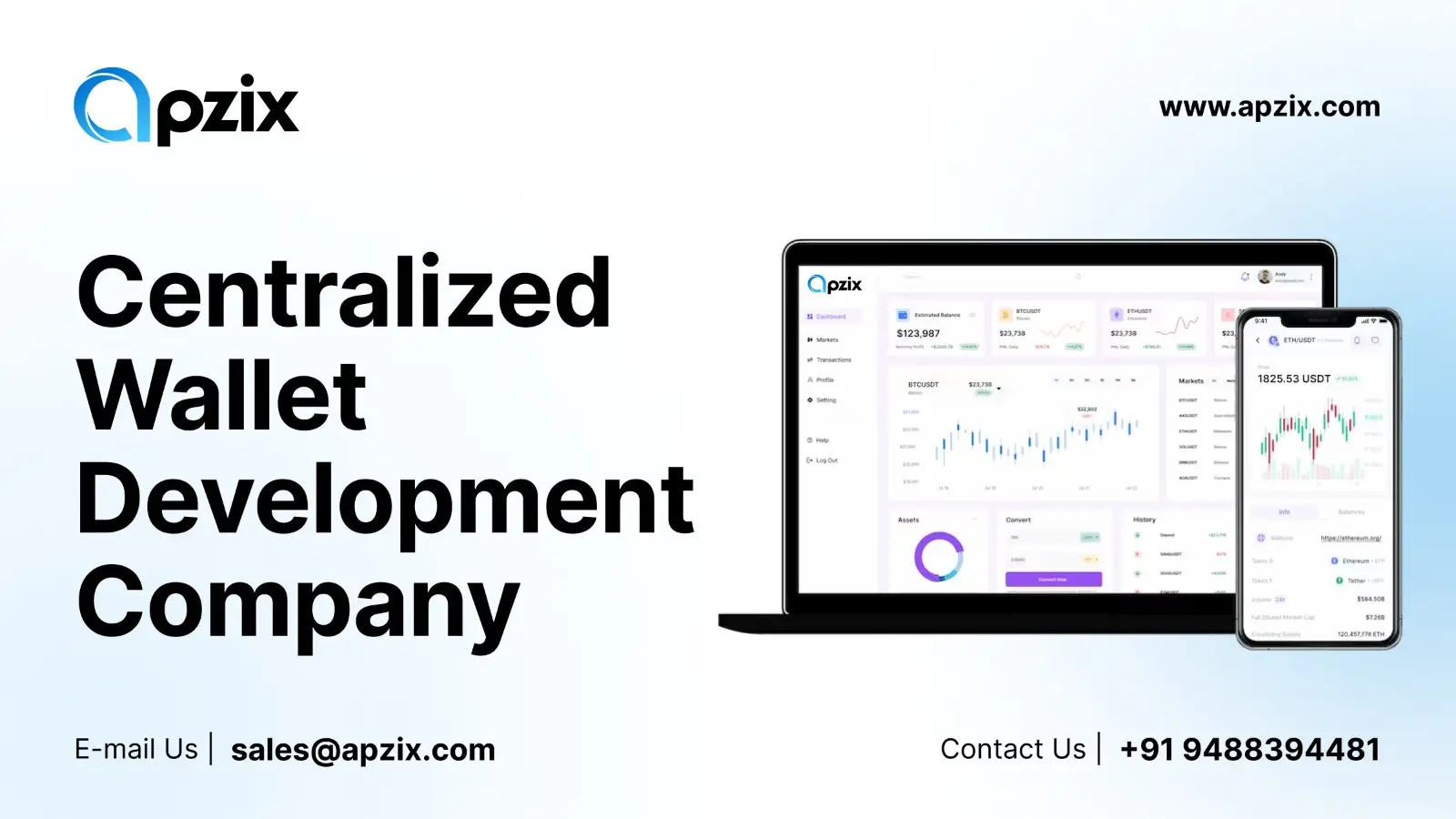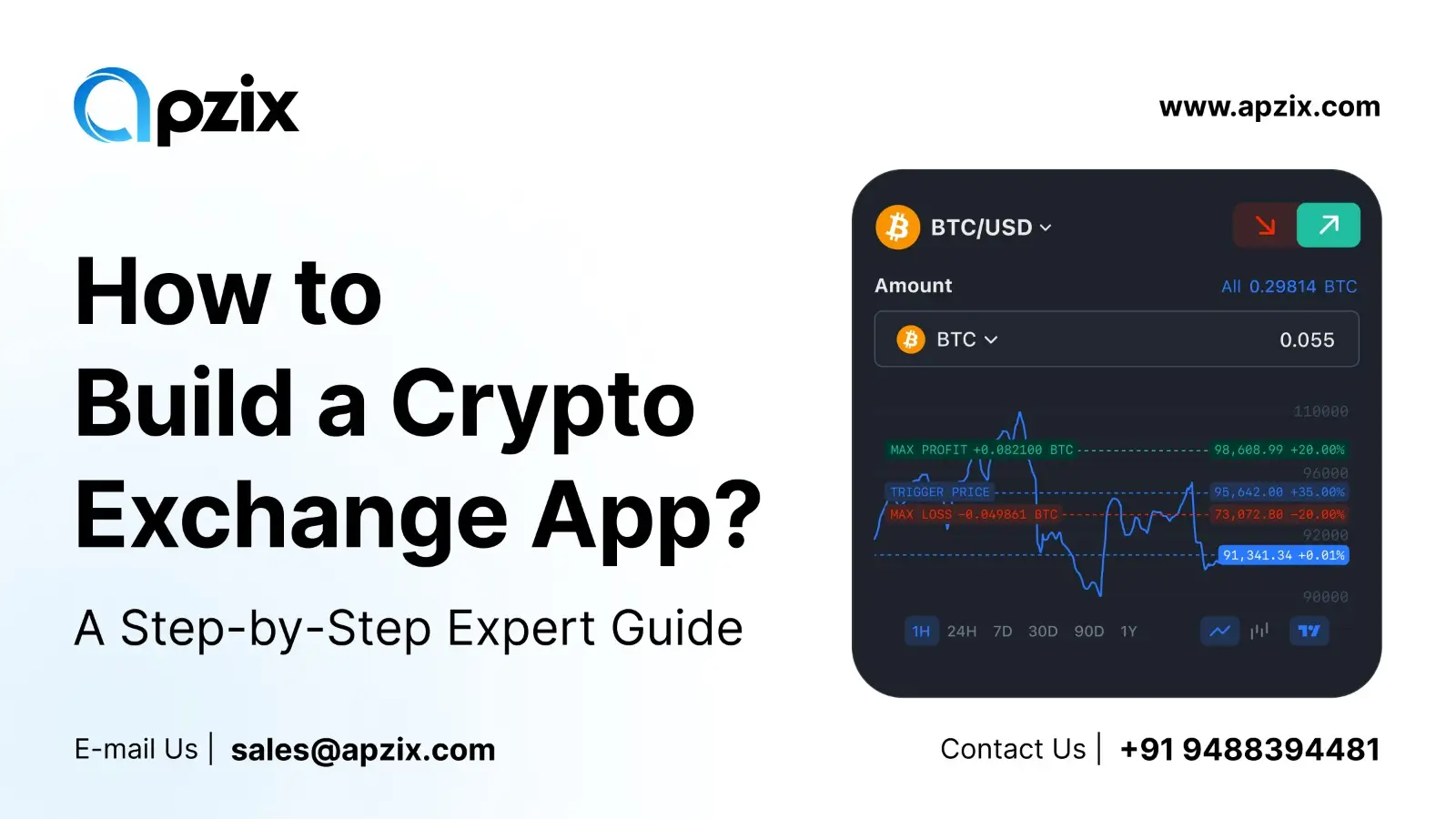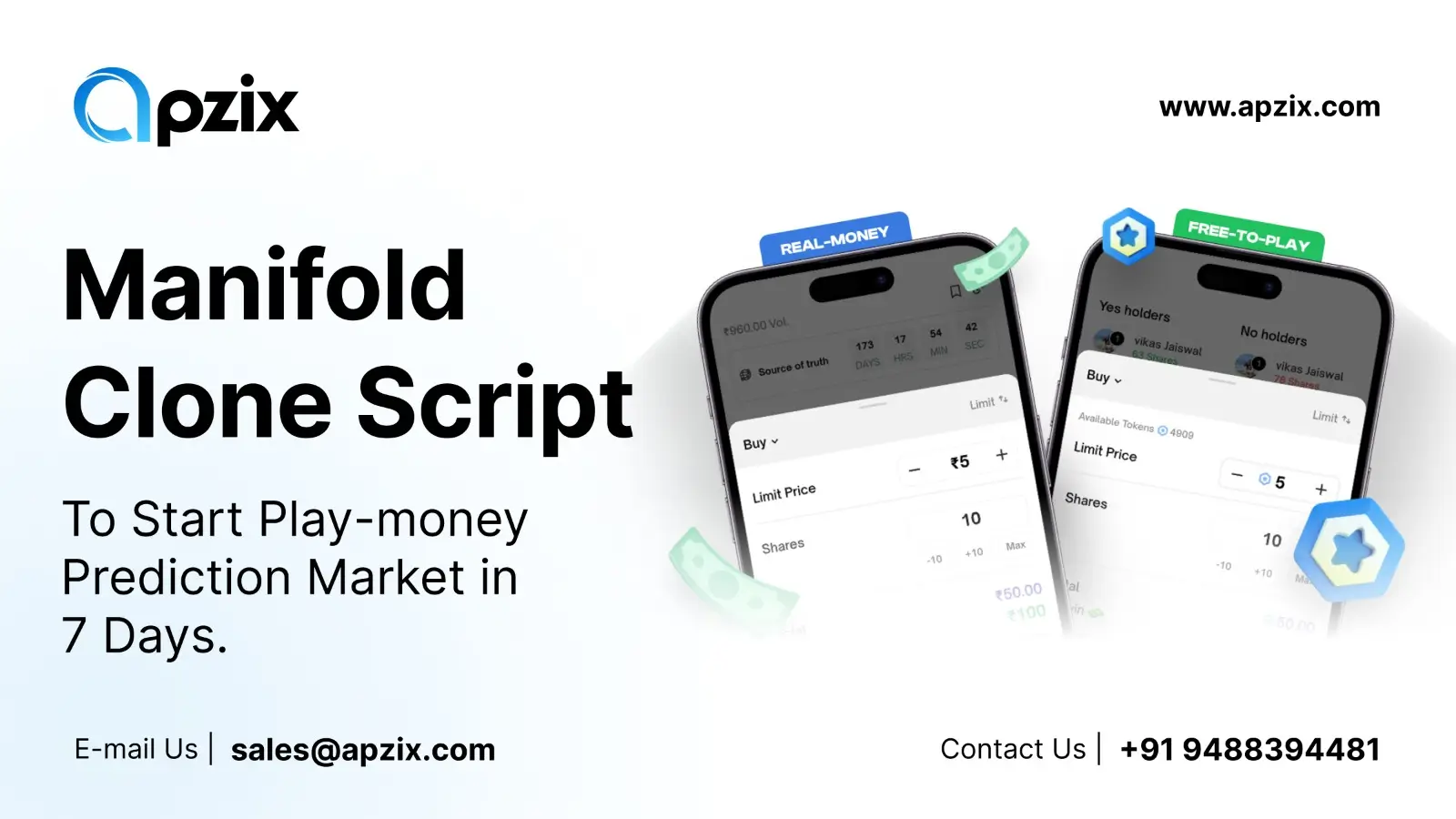
Building a cryptocurrency exchange requires careful planning and strong technical expertise. From security to scalability, every aspect of cryptocurrency exchange development is important to ensure a reliable and user-friendly platform. Whether you’re launching quickly with a ready-made solution or opting for a fully custom platform, understanding the key concepts is essential.
At ApziX, we provide secure and high-performance crypto exchange platforms designed to meet your business needs. To guide you through the process, we’ve compiled the Top 20 Frequently Asked Questions about building a crypto exchange covering topics such as costs, features, regulations, and profitability.
Explore these insights to learn how ApziX can help you create a trusted crypto exchange platform that is safe and efficient for your users.
Frequently Asked Questions - Cryptocurrency Exchange Development
Find answers to the most common questions about cryptocurrency exchange development, covering setup, security, costs, and key features
1. What is cryptocurrency exchange development?
It’s the process of creating a platform where people can safely buy, sell, and manage cryptocurrencies. This includes features like digital wallets, order matching, and strong security systems to ensure safe trading.
2. What is the golden rule of crypto?
Never invest more than you can afford to lose. The crypto market is volatile, so it’s important to do research and manage risks before investing.
3. What types of cryptocurrency exchanges has ApziX developed?
ApziX has expertise in building multiple types of cryptocurrency exchanges to cater to different trading needs. Each type offers unique features, advantages, and user experiences:
Centralized Exchanges (CEX):
CEX platforms are managed by a central authority, which oversees trading, wallets, and liquidity.
Key Features: High-speed transactions, deep liquidity, order matching engine, and user-friendly interfaces.
Ideal for beginners and professional traders who prioritize fast trades and reliability.
Decentralized Exchanges (DEX):
DEX platforms operate without a central authority, giving users full control over their funds. Trades are executed using smart contracts.
Key Features: Peer-to-peer trading, enhanced privacy, transparency, and lower risk of centralized hacks.
Suitable for users who prioritize security, privacy, and control over their crypto assets.
Hybrid Exchanges:
Hybrid exchanges combine the advantages of both CEX and DEX. They provide liquidity and speed like centralized platforms, while also offering user control and transparency like decentralized ones.
Key Features: Faster trades, secure wallet management, partial decentralization, and advanced trading options.
Perfect for users and businesses looking for a balanced solution that offers both convenience and security.
Peer-to-Peer (P2P) Platforms:
P2P platforms allow users to trade directly with each other without intermediaries. ApziX’s P2P solutions facilitate safe and transparent user-to-user transactions.
Key Features: Direct trading, flexible payment methods, escrow services, and dispute resolution systems.
Best for users who want to trade crypto directly and control the payment methods themselves.
4. Why should I build a crypto exchange platform?
Building a crypto exchange lets you enter the growing digital asset market and create a profitable business. You can earn through trading fees, token listings, and premium services. It also provides a safe and transparent platform for users and positions your brand at the forefront of the digital finance space.
5. How does a crypto exchange generate revenue?
Crypto exchanges earn revenue through trading fees on each transaction. Additional income comes from token listing fees and premium services such as margin trading, staking, or subscriptions. These multiple revenue streams make exchanges a sustainable and profitable business.
6. How much does it cost to build a crypto exchange?
Costs depend on the solution and features you choose. White-label exchanges start around $5,000–$15,000, offering an affordable option for startups. Fully custom platforms with advanced features can range from $50,000 to $100,000 or more. Your investment should reflect your business goals, scalability needs, and security priorities.
7. How long does it take to launch a crypto exchange?
A white-label crypto exchange can be launched in 2–4 weeks, suitable for quick market entry. A custom exchange from scratch with unique features may take 4–9 months. The timeline depends on platform complexity, integrations, and growth requirements.
8. Is it safe to build a cryptocurrency exchange?
Yes, if strong security measures are in place. Features like two-factor authentication (2FA), cold wallet storage, SSL encryption, and DDoS protection protect user funds and data. Regular audits and monitoring reduce risks and create a secure trading environment.
9. What is the difference between white-label and custom exchange development?
White-label exchanges are ready-made solutions with essential features and basic branding, allowing fast deployment. Custom exchanges are built from scratch, offering full control over design, features, and security. White-label saves time and cost, while custom development provides a unique platform with full flexibility.
10. Do I need a license to operate a crypto exchange?
Yes. Licensing makes sure your platform complies with local laws, builds trust, and avoids legal penalties. Requirements usually include KYC/AML compliance, financial audits, and regulatory approvals. Proper licensing supports long-term growth and credibility.
11. Which regulations must I follow when starting a crypto exchange?
Exchanges must follow local and international regulations, including AML and KYC protocols. Some jurisdictions require specific financial licenses. Data protection and cybersecurity laws must also be observed to protect user information. Compliance supports legal operation and builds user trust.
12. Which is better: Centralized or Decentralized exchange?
Centralized exchanges (CEX) offer fast transactions, high liquidity, and user-friendly interfaces, suitable for beginners and high-volume traders. Decentralized exchanges (DEX) provide more transparency and control, letting users manage funds directly. CEX focuses on convenience and speed, while DEX prioritizes security and privacy.
13. What are the essential features of a crypto exchange?
A successful crypto exchange includes:
Secure user authentication and KYC/AML compliance
Multi-currency wallet support
Fast order-matching engine
Liquidity management
Real-time charts and analytics
Multi-device compatibility
Strong encryption and cold storage
These features create a reliable, scalable, and user-friendly platform.
14. How do investors benefit from crypto trading?
Investors gain access to a fast-growing, profitable market. Cryptocurrency volatility creates opportunities for short-term profits and long-term growth. Crypto trading operates 24/7, offering flexibility and portfolio diversification. Early adoption provides access to global financial opportunities.
15. What are the future trends in crypto exchange development?
Greater decentralization and user control
AI for fraud detection, trading bots, and personalized experiences
Integration with DeFi, NFTs, and tokenized assets
Improved regulatory compliance and transparency
Exchanges are evolving into smarter, safer, and more accessible financial platforms.
16. Which company offers the best cryptocurrency exchange development services?
ApziX is a trusted provider of crypto exchange development services. They build secure, scalable, and user-friendly platforms, from ready-to-launch white-label exchanges to fully custom solutions. ApziX integrates multi-currency wallets, liquidity management, advanced security, and regulatory compliance to help businesses launch successful exchanges.
17. Is a crypto exchange profitable?
Yes. Revenue comes from trading fees, withdrawal charges, token listings, and premium services. Continuous 24/7 transactions and increasing adoption of digital assets drive steady profits. With the right platform, security, and marketing, crypto exchanges can become a long-term revenue-generating business.
18. What is the role of smart contracts in a crypto exchange?
Smart contracts automate transactions and trades without intermediaries. They execute agreements based on pre-set rules, reducing fraud risk and operational costs. In decentralized exchanges, smart contracts enable secure, transparent, and efficient trading.
19. Can I integrate NFTs and DeFi services into my exchange?
Yes. Integrating NFTs and DeFi allows users to trade digital collectibles, stake assets, lend/borrow, and participate in yield farming. This increases user engagement and positions your exchange as a versatile platform in the digital asset ecosystem.
20. White-label vs. custom exchange development – what’s the difference?
White-label exchanges are pre-built and ready to deploy, with essential features and branding options. Custom exchanges are built from scratch, offering full control over design, features, and security. White-label is faster and cost-effective, while custom solutions provide a unique platform for your business.











